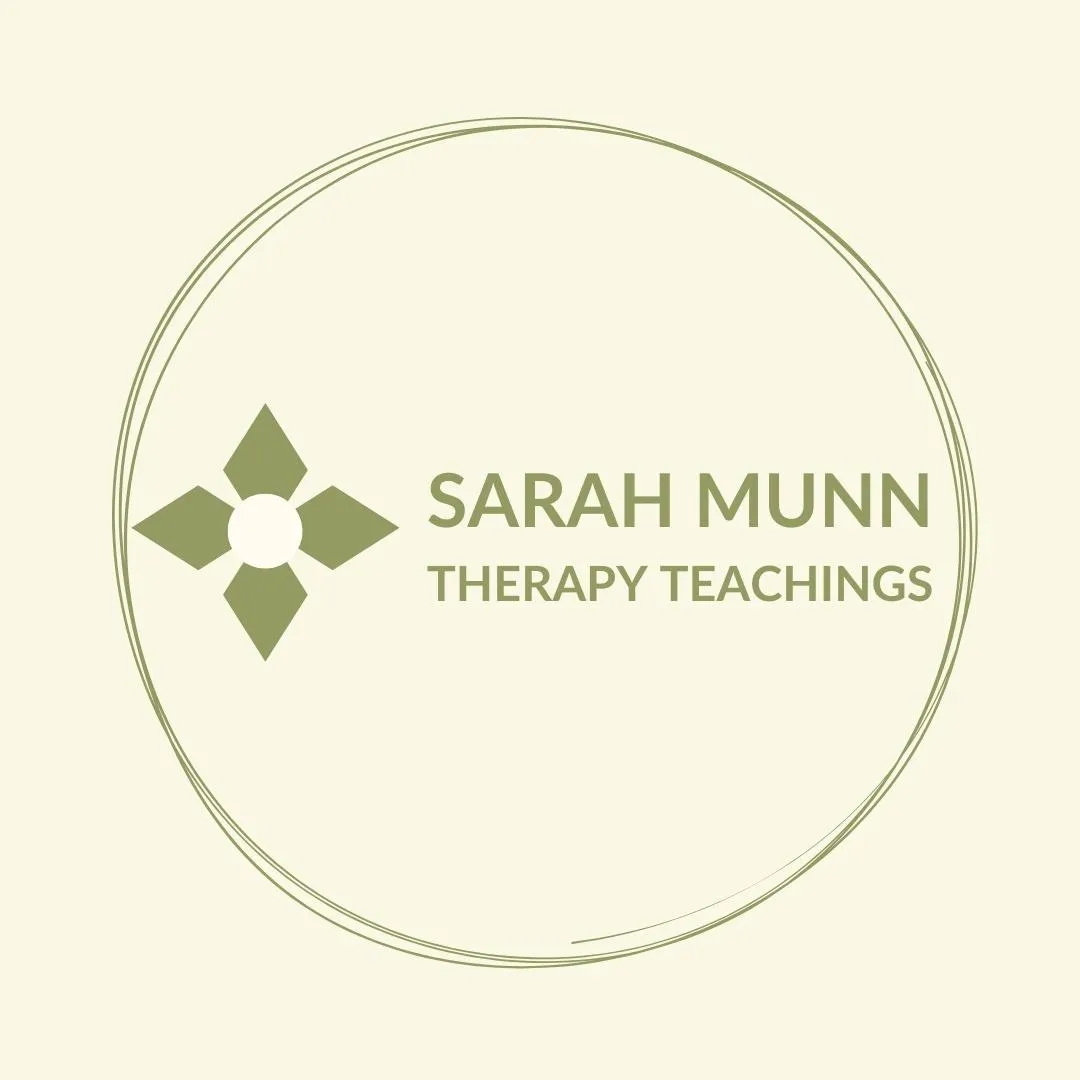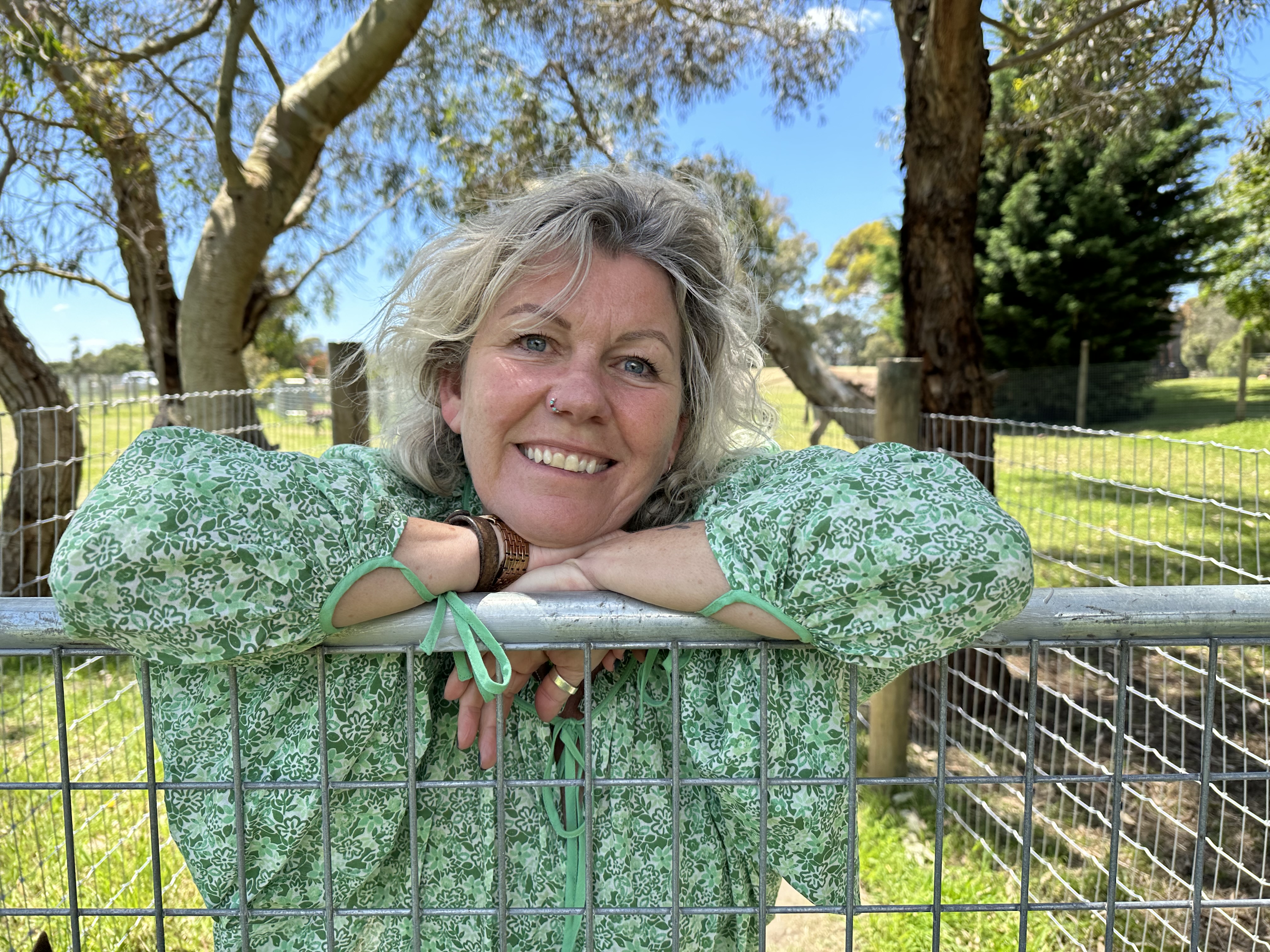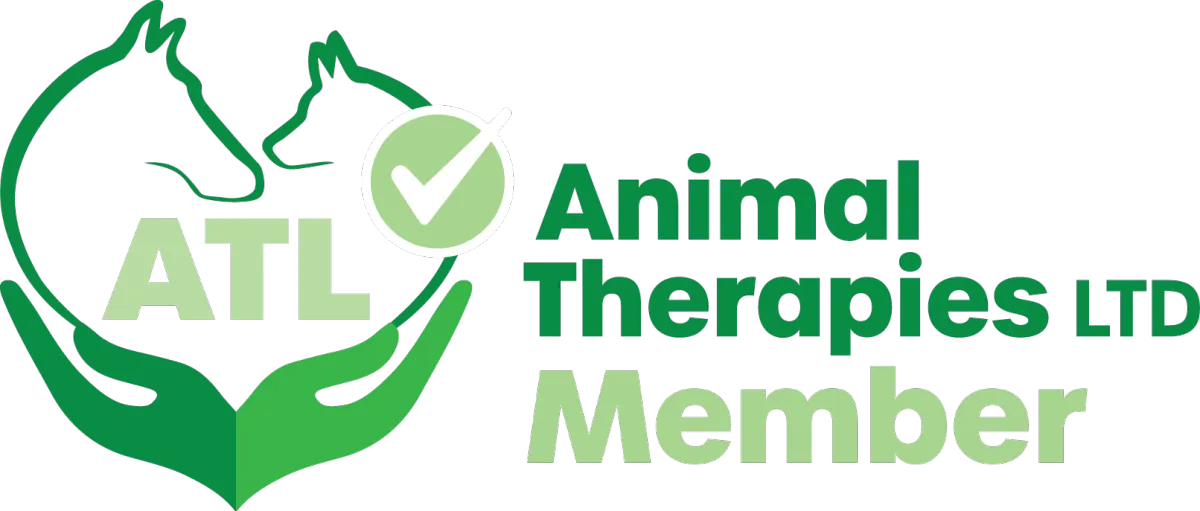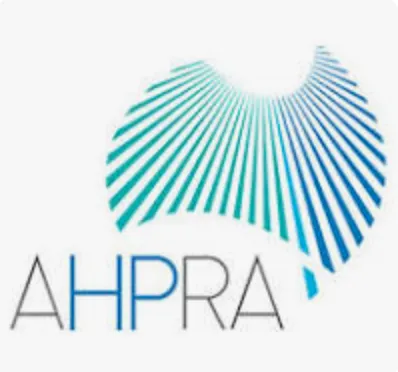Parent Resources
BLOGS
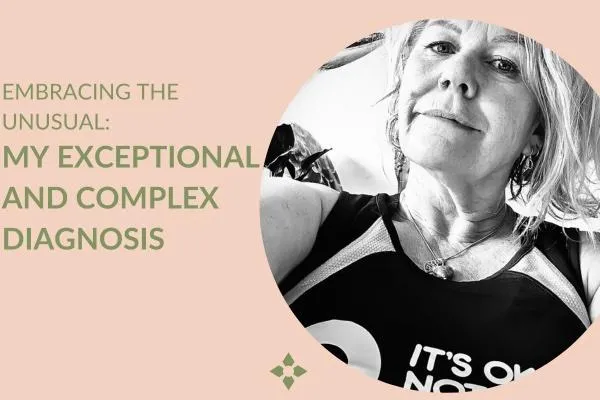
Embracing The Unusual:My Exceptional and Complex Diagnosis
“So here goes - the personal side of what underpins my professional practice. Now this is probably over-sharing. But that’s often a neurodiversity thing right?” - Sarah Munn
My Exceptional and Complex Diagnoses
I know many people want to work with a therapist with some lived experience, and that means the therapist has to be brave and vulnerable and share their story. At first sight, this goes against the rigid boundaries of the health professional who ‘should’ keep their personal stories to themselves. In this day and age though, the community is looking for authenticity and honesty from their healthcare providers - for someone who ‘gets it’ and has walked the walk. And boy have I? Barefoot and with bells on.
So here goes - the personal side of what underpins my professional practice. Now this is probably over-sharing. But that’s often a neurodiversity thing right? So let’s be ourselves and show up as who we truly are - without fear of judgement.
Early life’s challenges
I don’t have time to write the story of my early life; hiding behind chairs, not eating, being put in the back room at school, itching, issues with clothes, noise, sleep, concentration, talking all the time, and a multitude of bizarre and troubling traumatic events, all of which contributed to addictions. Wow - I’ll shut up for now about all that and get back to the topic of diagnoses.
A quest for the right diagnosis
It was hard getting the right diagnosis. Because I kept being told ‘you’re complex!’
Gee thanks….. I think.
What? That’s not a compliment?
Well, it isn’t. Because it’s harder to treat one thing if there’s another thing also going on. It becomes difficult to see the wood for the trees.
The medicated teenager
Health professionals bandy around a lot of terminology and give out a lot of medication. In my teens, I was as put on anti-psychotic medication. Whaaatttttt!!!! What on earth was that GP thinking? I took them for a week and then flushed them down the toilet because they gave me nightmares but didn’t help my anxiety. He then gave me Valium to help me sleep. Sure, it made me sleepy, but didn’t help me at school at all. Then he got struck off for inappropriate conduct with female patients, which is another story entirely.
In my late teens and as an adult I have seen psychologists and counsellors, mainly for depression and anxiety, but it was all a bit disjointed and often just firefighting. ‘Just take a few days off.’ What from life? From being me? Nobody actually assessed me. Until more recently.
The frustration of being labelled ‘complicated’
I worked through my traumatic events with a psychotherapist who told me I had complex PTSD and disorganised attachment. She said she didn’t think I was neurodiverse, despite both my children being, but she said ‘you’re complicated.’ So I learned about attachment and PTSD and relational trauma and I worked on strategies, using somatic therapy, parts work, writing, mindfulness and art. I started to work with the shadow and the inner child. I worked experientially with horses, did yoga and learned to still my mind (somewhat) in meditation. I got to the point where I had a more secure attachment style and could manage my flashbacks and anxiety, but still something didn’t feel quite right.
Exploring Neurodiversity
Eventually, the time was right to look down the neurodiversity route. I was going through another life crisis, just quietly, and stoically, sharing my resilient and optimistic mask with the world as I battled to the point of meltdown and fatigue on an everyday basis. We get knocked down, and we get up again!
The revelation of 2E
I saw a different psychologist who had no doubt I was neurodiverse. We did a hundred standardised assessments and she diagnosed Complex PTSD, autism level 2 and ADHD. I scored very high for masking and executive functioning difficulties. She said ‘you must be exhausted - you need more rest!’ She was great, but while she assessed me, she didn’t offer intervention and referred me on.
The next psychologist said ‘you are ‘twice exceptional’ or 2E. Twice exceptional is a term for gifted people who have some form of learning or developmental disability. This was a revelation - being a genius and disabled. Wow. Made sense of failing high school and failing university, but feeling I was bright enough somewhere in me to match my peers. (I did make it eventually and have got a degree in OT, don’t worry, I am Qualified). This new psychologist referred me to an online group to learn about relationships.
The road to ADHD
At the group this psychologist said ‘why aren’t you on ADHD medication? That’s the best practice model for ADHD!’ She referred me to a psychiatrist.
I saw the psychiatrist who agreed that I have autism, ADHD, complex PTSD and he added AUD (alcohol use disorder) to the list. I don’t drink now, but drugs and alcohol were used for coping and socialising as a major part of my backstory. He said ‘I can’t put you on ADHD medication because of your addiction history. Get a second opinion from another psychiatrist if you like. You’re complex!’
Gee thanks.
Proper diagnosis and clinical practice
And there we are again. It feels like I’m right back at the beginning, unable to go on ADHD medication which is part of the best practice plan for so many. And with a bunch of somewhat unhelpful labels since I still can’t pin down exactly what is what. But the point I have learned is, I don’t have to know. I don’t have to medicalise myself. I now look at the world functionally and address each problem as it shows. And helpful strategies are often helpful for all of us, regardless of the diagnosis. As a professional and registered therapist though, it’s essential to understand the different diagnoses properly, so you don’t misguide people. What people are saying on social media and commonly held beliefs and myths cannot, and should not, guide clinical practice.
Supporting parents with neurodiverse children
I say all this to provide a framework to share my work and my passion, from a point of having dual diagnosis, (co-occurring disorders or co-existing conditions) myself and having neurodiverse children, one of whom has Trisomy 21 (Down syndrome). Because THAT is truly exceptional in the professional sector when trying to help parents.
I already have the next blog in my head to talk about how I manage these diagnoses on an everyday basis so I thrive in work, family and relationships. Just coping isn’t enough. Life is the noticing of Joy and Awe and being expansive. I learned to love the life I live. I learned how to live, I learned how to be comfortable with my messy, complex little self, to a point where I actually feel quite simple and settled from within…..So more on that another day.
Diagnosis: clarity, relief and choices
Getting a diagnosis can be a relief to some, and the start of clarity for others. It can open doors to understanding yourself deeper, lightbulbs go off, but it can also be confusing and create obsessive thinking about the diagnosis. Go for it if you are drawn to it, but don’t if you’re not. Follow your intuition. Be yourself. And reach out for help.
BOOK REVIEWS
Hagitude by Sharon Blackie
One of my less evidence-based and more woo woo choices which I recommend to people who are in the depths of the despair we call peri-menopausal, or heading into the more mature years.
Hagitude talks of the wisdom and acceptance of older age as women, and tells the myths and stories that surround us. Often as mothers we have our kids with additional needs at home longer, or forever. And unlike other kids still hanging around at home into their thirties and moving in with their partners, even having babies, some of our kids won't do that. They may not work, or have a purposeful activity every day, they may not drive, or be independent at home.
In these circumstances, that quest for self, for the sense of identity that we lost, for the search and essence of who we are, this acceptance and finding oneself in the greying years can be a magical transformation.
And the story telling in this book is a helpful and interesting addition.
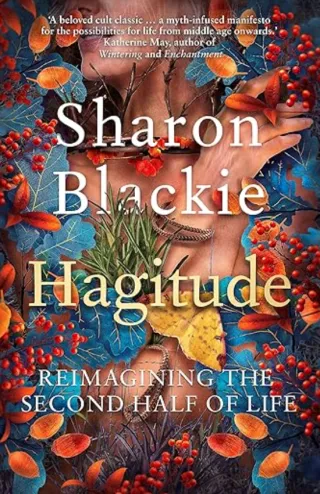
The Well Gardened Mind by Sue Stuart-Smith
This book is an intelligent review of the history of gardening. It has recollections of famous psychologists and artists and the affect that gardens, nature and gardening had on their lives.
From Freud to Winnicott these stories remind us of the inherent nature of gardening within the life of human beings, and the positive and mindful properties of beauty, flowers and the pant, grow, harvest and cycle.
Stuart-Smith takes us back to the first world war and the gardens built among the rubble of the trenches, and to the elderly who cling on to their window boxes and pots to stay present when there is not much time ahead of them.Her addition of photos including, ironically, Freud on his bed in the garden, provide a strong visual to the stories and accounts in the book.
I loved this book for its inspiration to remember that gardening is intrinsically mindful and meditative. There are great examples of garden design which I can include when we make our gardens at the new farm.
I want to create safe spaces where people can feel both safe, protected and free, and Stuart-Smith provides good impetus for this. I want to create spaces where mindfulness will be easier, and where we can engage in activities which allow us to be present. Personally this book reminded me to get outside and get dirt under my finger nails.
A great benefit for me on days when I find meditation difficult due to dissociation which I sometimes experience. I will certainly get my boys in the garden for mindfulness as much as I can. As they get older their interest in my ideas is fading and their own passions take over. But this book reminded me to persist with having them gardening, however dorky and boring they may find it.
Because this is sometimes more accessible than a seated meditation.
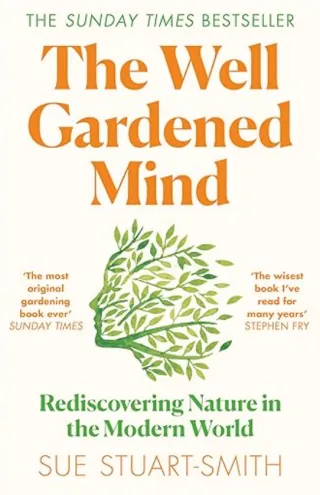
Letting Go - The Pathway of Surrender by David R. Hawkins M.D., Ph.D.
This is a big book in so many ways. It is often referenced, packed with ‘aha’ moments and one of the cornerstones of this kind of modern thinking into our own process of letting go.
If you are working on letting feelings come up, noticing them, not judging them, and learning to let them go, then this is a good addition to your reading list.
Some parts I was a bit, ‘yes I already know this’, but then I would find myself thinking ‘Oh Gosh, that’s me, I can do that differently and get a more peaceful result.’
Well worth practicing these techniques if this kind of thinking suits your mindset. I would be surprised if many people didn’t take something away from this book. But it is long and maybe a good one for an audiobook road trip.
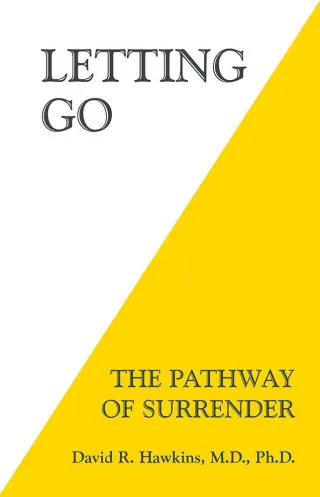
The Language of Archetypes by Caroline Myss
I loved romping through this 12 hour audiobook packed full of archetypes, mystery and magic. Not to mention historical characters, Queens and Goddesses, I now recognise as part of who I am.
If you like pure evidence-based, scientific information this definitely is not for you!But if you don’t mind suspending disbelief a bit, it is quite entertaining and is delivered in the form of her live workshops. Archetypes date back to Plato and were popularised in psychology by Carl Jung.
Caroline adds some modernisation to it all by extending beyond Jung’s 4 and 12, but I wonder if it waters down the pure form too much. Caroline has a quirky manner which is very straight forward.I love her and think it’s hilarious. A touch of that autistic witchy no-nonsense about her.
I can imagine she would irritate some people though.If you want to find out if she is for you she has a lot of short YouTube videos on archetypes you can start off with. I loved it, but I also took it with a pinch of curios, comedic salt.
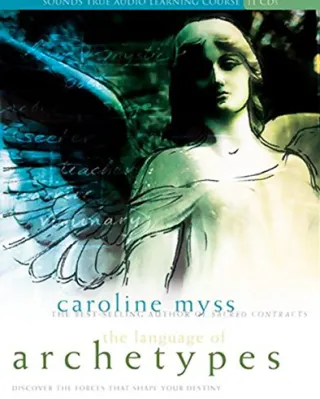
Acknowledgement to Country
We Respect and Acknowledge the Traditional Custodians of Country throughout Australia and their connections to the land, sea and community, and recognise the land on which we work is home to the Bunurong / Boon Wurrung members of the Kulin Nation. We pay our respects to all Elders past, present & future.
We meet the required standards for Insurance and Education.
Farm:
Gadara Farm
470 Boneo Road
Boneo, Vic 3939
Clinic:
Barefoot Therapists
1/16 Henry Wilson Drive
Rosebud Vic 3939
(03) 5981 1120
Sarah Munn Therapy Teachings
ABN 62307340650
Connect with us
We'd love to connect with you on Facebook or Instagram.
